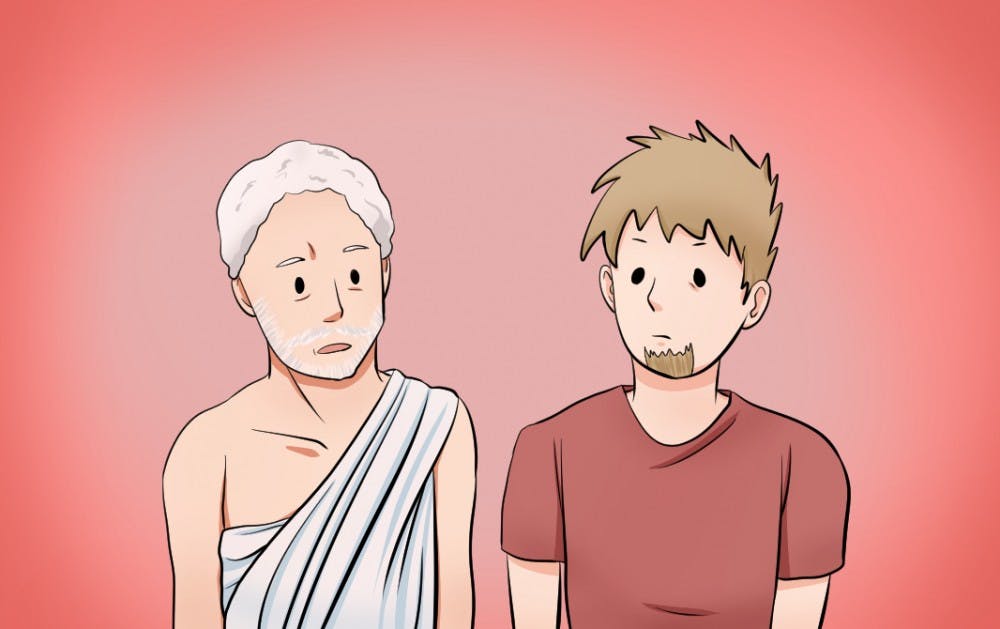Amid recent controversy in the media regarding alt-right groups, some say it's becoming increasingly difficult to ignore their actions and the figures that stand at the forefront, even here on ASU’s campus.
With that in mind, author Donna Zuckerberg is coming to ASU to discuss her book “Not All Dead White Men: Classics and Misogyny in the Digital Age” to help attendees understand one of the ways in which several alt-right groups have mobilized supporters – appropriating classical texts to progress their rhetoric.
The author will be featured in a reading group and discussion put on through a partnership between ASU's Institute for Humanities Research and the Arizona Center for Medieval and Renaissance Studies.
“Not All Dead White Men: Classics and Misogyny in the Digital Age” seeks to examine how texts written by classical scholars can lend themselves to more harmful rhetoric used by members of the alt-right, and what that suggests about the texts themselves and the era in which they were written.
Western civilization as a broad concept is something to which members of the alt-right are constantly referring to add validity to their claims, Zuckerberg said.
With ancient Greece and Rome viewed as Western civilization's origin point, their greatest scholars' words have frequently been used to buttress alt-right arguments.
“There's this weird tension when you read (classical texts) where they feel at once very alien because they were created so long ago,” said Zuckerberg, who is the sister of Facebook CEO Mark Zuckerberg. “But also really familiar because in a way we've seen versions of that material used and reused throughout history.”
Elizabeth Grumbach, the assistant director for the Institute for Humanities Research, will be moderating the discussion and conversing with Zuckerberg during the talk.
The discussion, Grumbach said, will allow people to look at the past and examine how it’s influencing the present, while also engaging with historical literacy in a productive way.
Michael Tueller, a professor of classics in the School of International Letters and Cultures, said much of the appeal of using classical texts in arguments stems from the idea in some quarters of our culture that if a school of thought exists within the classics, it has some kind of authority.
Tueller said he believes much of the misappropriation of texts and figures comes from the fact that humans exist within a social situation that’s rapidly changing, so it can be comforting to look at texts where everything is so concrete and easy to understand.
Given the era in which they were produced, classical texts, he said, can also inherently be more misogynistic and racist than what we accept today.
Tueller said that these texts sometimes have been treated as the only foundation for some cultures, and he said that's a real problem in more ways than one.
“One, that of course there are many foundations for our culture," Tueller said. "The other in that it disregards the work of real classical scholars because a scholar is not a cheerleader. We don't take the texts that we work with and say, ‘therefore go forth and do this.’"
He said many of the classics were written by elite members of society from their time – those who didn’t have to partake in physical labor to support themselves – making their viewpoints less inclusive of the rest of society.
Zuckerberg said using the words of Aristotle and other esteemed scholars from the past, those who are widely regarded as some of the greatest philosophers of human history, makes members of the alt-right feel intellectually legitimate.
"It empowers them to feel that misogyny is not only acceptable, but really a form of enlightenment," she said.
The Arizona Center for Medieval and Renaissance Studies in partnership with the Institute for Humanities Research will be meeting for an afternoon reading group on April 2 in preparation for Donna Zuckerberg's visit and discussion on April 11.
Reach the reporter at snalcan1@asu.edu or follow @SarahAlcantar on Twitter.
Like The State Press on Facebook and follow @statepress on Twitter.




